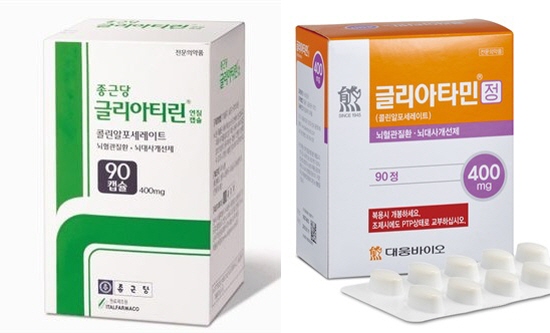With the government’s push to enhance the state’s role to fight dementia, local drugmakers are rushing to develop low-cost generic drugs for a larger dementia market.
Most of the generics development targeted two original ingredients last year.
According to Korea Biomedical Review’s analysis of data from the Ministry of Food and Drug Safety, the government gave the green light to 11 bioequivalence tests for the development of dementia generics last year.
Among them, eight tests targeted the ingredient choline alfoscerate, and the other three, donepezil.

Dasan Pharmaceutical, Daewon Pharmaceutical, Korea United Pharm, Kolmar Korea, Guju Pharm, Kolmar Pharma, Korea Prime Pharm, and Inist Bio Pharmaceutical are developing choline alfoscerate-targeting generics. Daewoong Pharmaceuticals, Sungwon AdCock Pharm, and Korea Pharma are working on donepezil-active treatments.
A variety of dementia drugs are available on the market, such as donepezil, galantamine, rivastigmine, and memantine. Other treatments such as choline alfoscerate and acetyl-L-carnitine aim to improve brain function.
The pharmaceutical companies’ eyeing on the two ingredients is attributed to the large market size of the two.
Prescription medicines that contain choline alfoscerate sell 200 billion won ($186.5 million) a year. Such drugs are so popular that Chong Kun Dang and Daewoong Pharmaceuticals are waging a war of nerves over the regulator’s selection of reference listed drugs.
Donepezil also takes up a significant share in the dementia treatment market, selling about 100 billion won a year.
Despite existing generics, drugmakers are trying to release more treatments in the hopes that the government’s policy supports for dementia would enlarge the market.
However, some observers question whether additionally developed generic drugs would be successful because many existing medicines and drugmakers have already dominated the market. The government’s support will go to new drugs for dementia, not generics, they say.
“Without releasing a new drug, companies are launching generics only. Latecomers are even engaging in price competition or self-prescriptions just to enter the market or raise the number of prescriptions,” said an official at a drugmaker of generic dementia treatment.
Releasing more generics for dementia will make the already-competitive market even more competitive, the official added.

